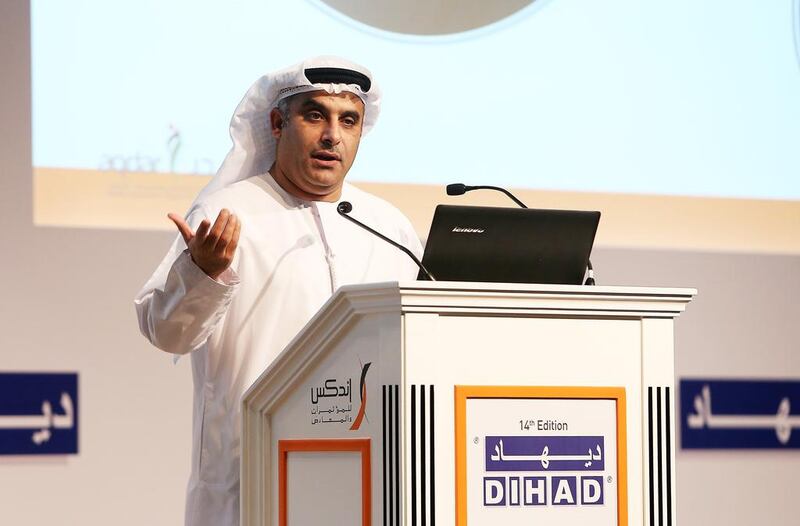DUBAI // Emiratis need to feel a “higher sense of responsibility” to help solve the conflicts around them, the head of a student programme says.
“We’ve been able to write the first draft of a national document, which includes the world’s concerns, tolerance, women’s status, conflict and peace, and the skills that are taught to the students to reach this culture,” said Dr Ibrahim Al Dabal, general coordinator of the Khalifa Student Empowerment Programme, at the Dubai International Humanitarian Aid and Development Conference on Thursday.
“We are talking about the youth of the future and we are trying to really harness their aspirations and engage them in society.”
At many schools across the Arab world, he said, children’s general behaviours were laziness and obesity, among others.
“Every entity is trying to empower its students because if we leave them it will lead to terrorism and destruction,” he said.
“In the UAE, we have a clear road map for children, from school to the marketplace, but we must protect the future generations in the coming years. Now everyone is living in this uncontrollable digital revolution.”
Of the 335 million Arab citizens, around 60 per cent are young people.
A high rate of unemployment is already on the rise and more jobs are needed.
Dr Al Dabal made reference to a 2009 United Nations Human Development report that estimated poverty in the region to affect 40 per cent with 150 million Arabs living under extreme poverty and five million illiterate.
“What happened after the Arab revolution is we have more challenges,” he said. “The situation is worse now and we have to deal with more crises. We have to make sure people in the UAE will be an added value in this system we’re all living in, regardless of religion or race.”
He said regional events such as the Qatar World Cup in 2022 deserved less attention than such issues that would have a long-term effect.
“We want to improve the situation in schools and universities,” he said. “We looked into various international reports and the capacities of students that enable them to get into the future, whether it be work in humanitarian relief, education and facing wars. We want all Emirati youth to be ready to face this future.”
The Aqdar programme, solely for Emiratis, focuses on four pillars that include personal talent, national awareness, safety and health, and crime prevention, with police training. “We also have digital games to communicate with the youth in a way that makes sense to them and is interesting,” Dr Al Dabal said.
Afra Al Basti, a Federal National Council member and Dubai Foundation for Women and Children director general, said the Arab world faced key challenges.
“It is full of sectarianism and civil wars. This great wave of disasters caused divisions and today we have families and tribes living in difficult conditions. Sympathy isn’t enough,” she said.
“We want to scale up our work in conflict areas and we need to spread the concept of the UAE in dealing with refugees.”
cmalek@thenational.ae






